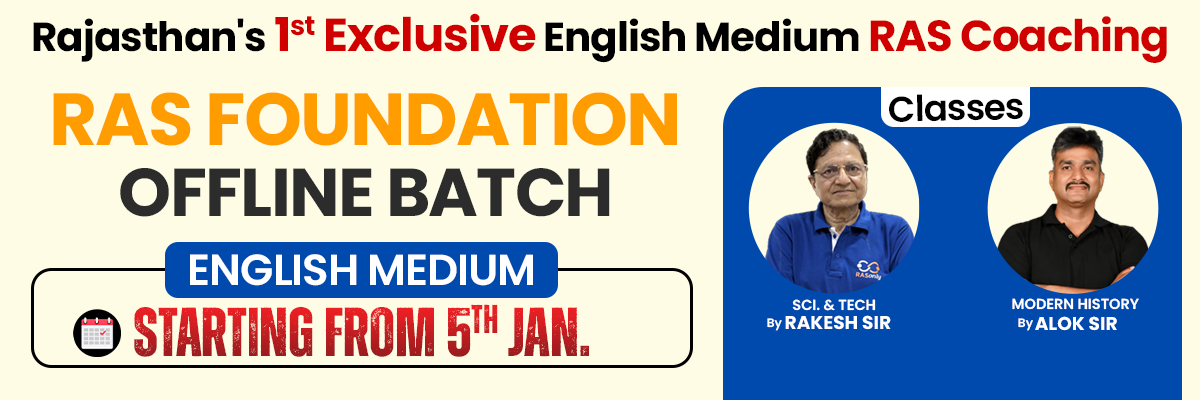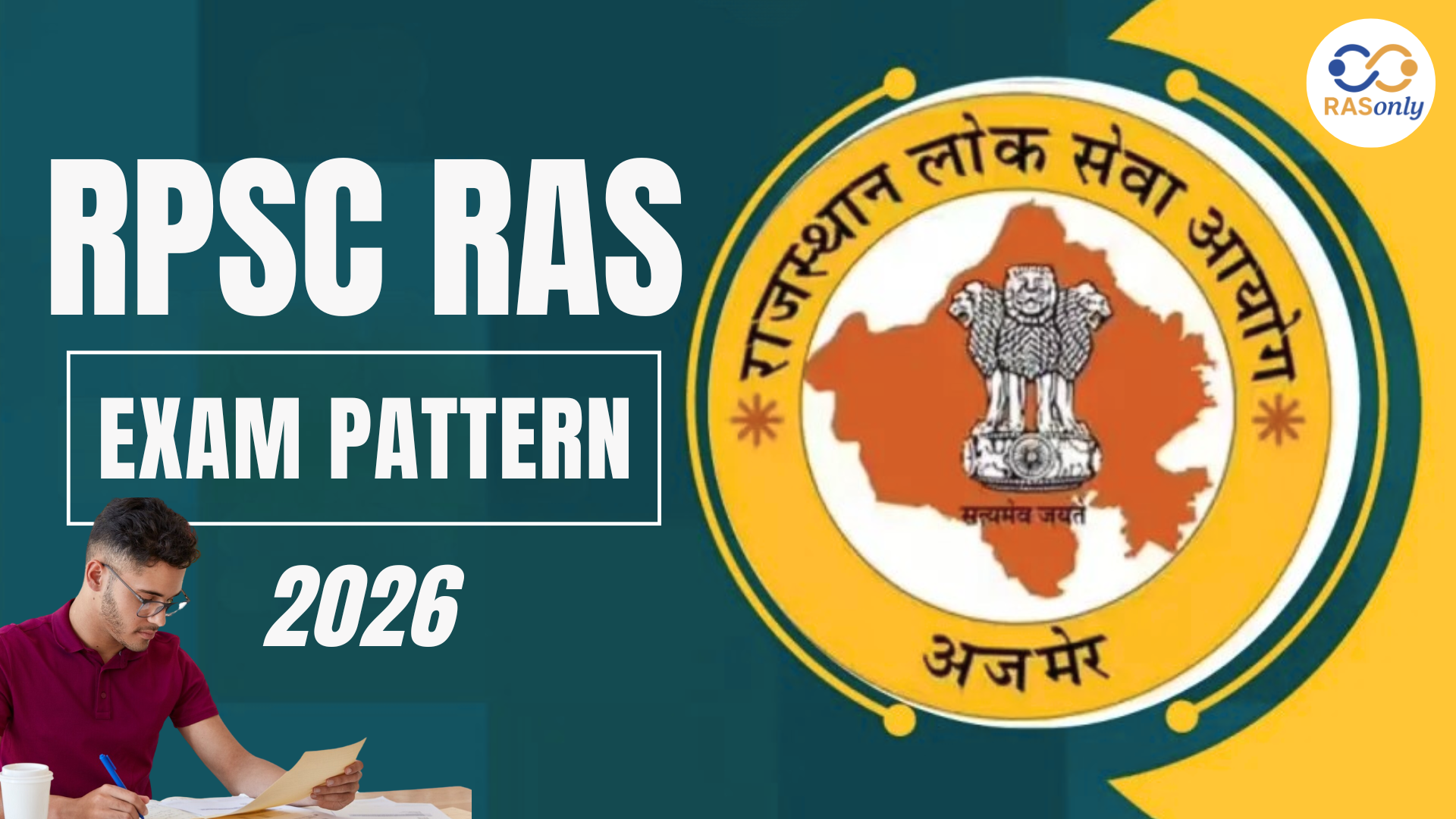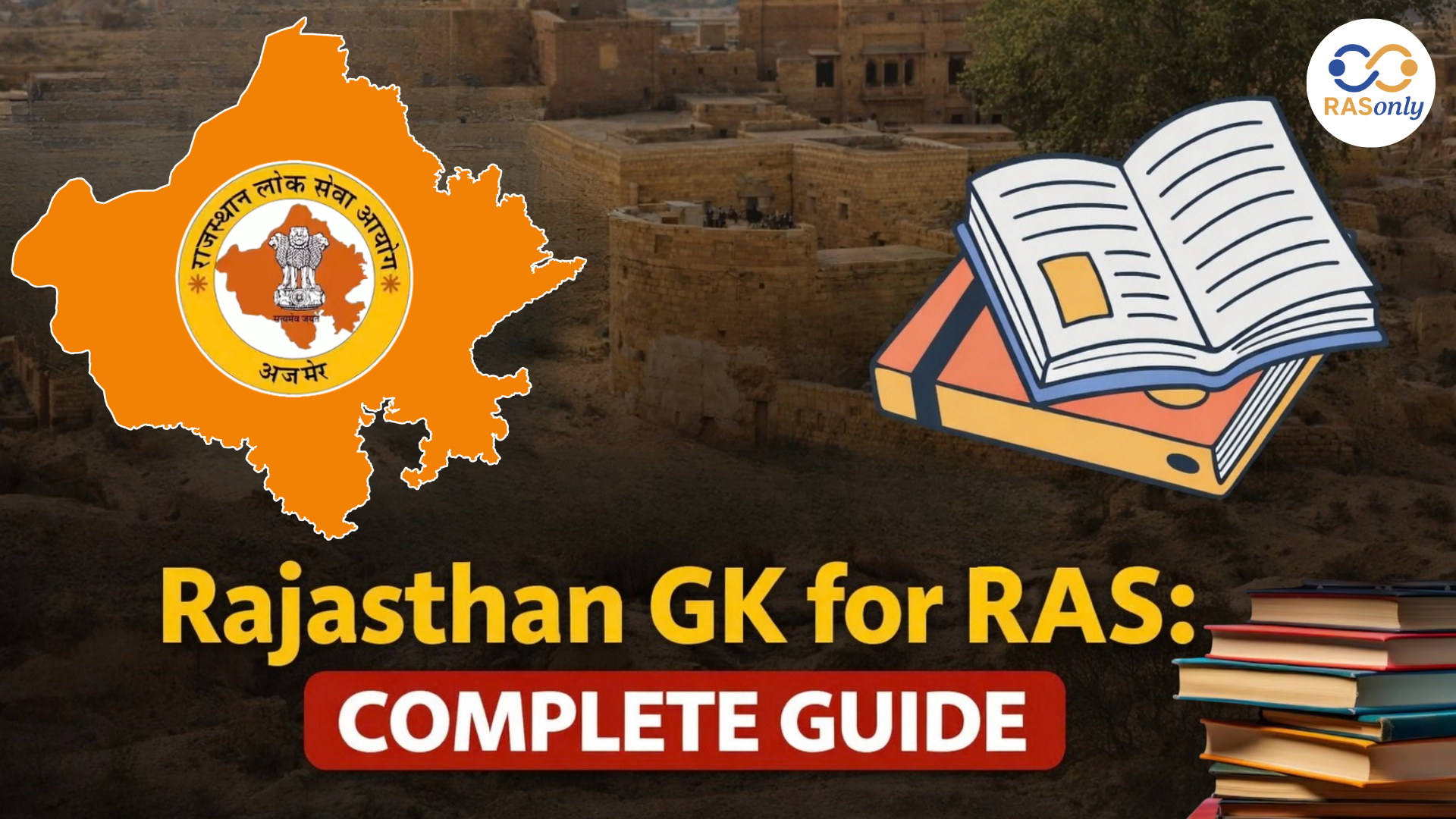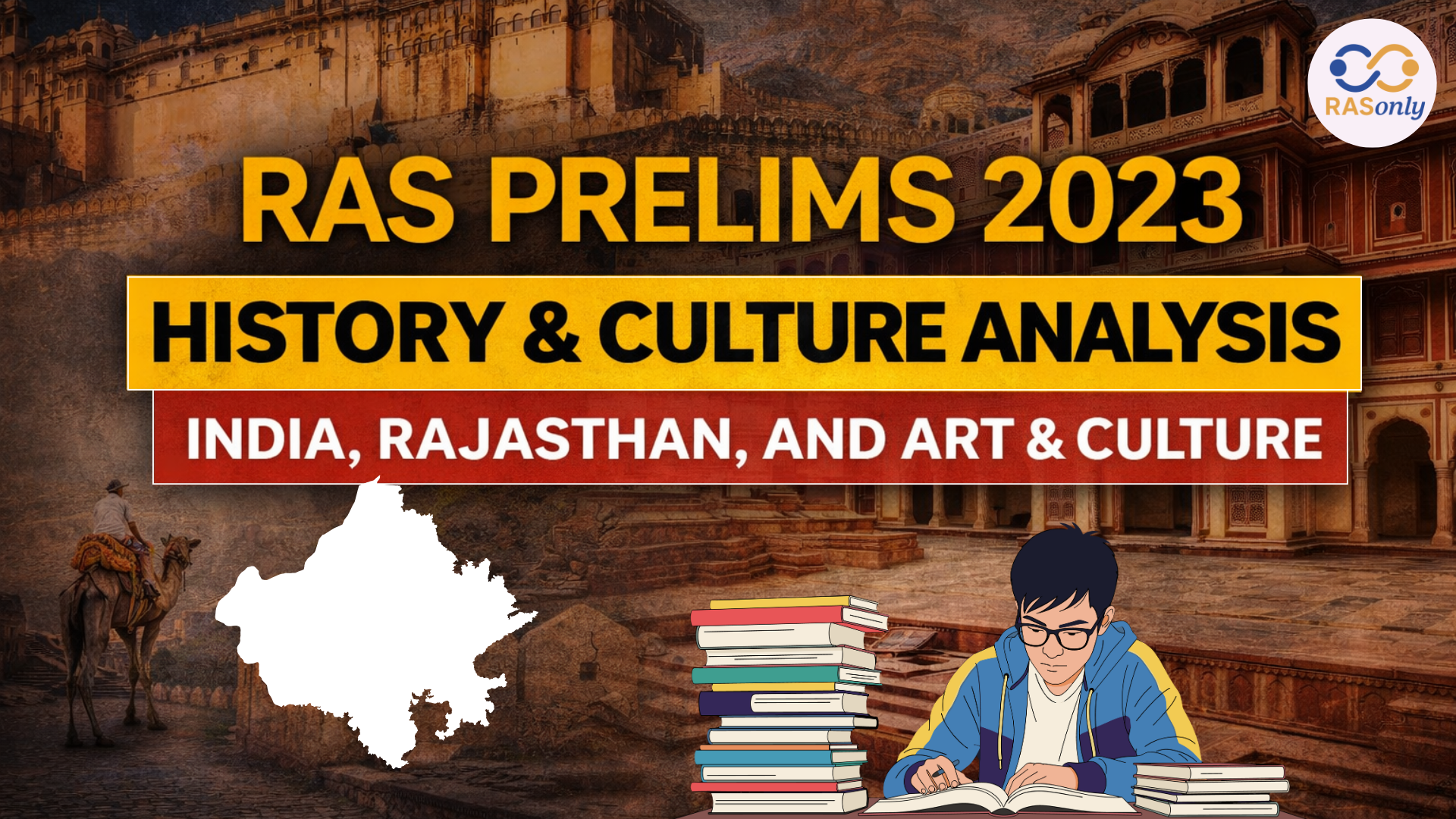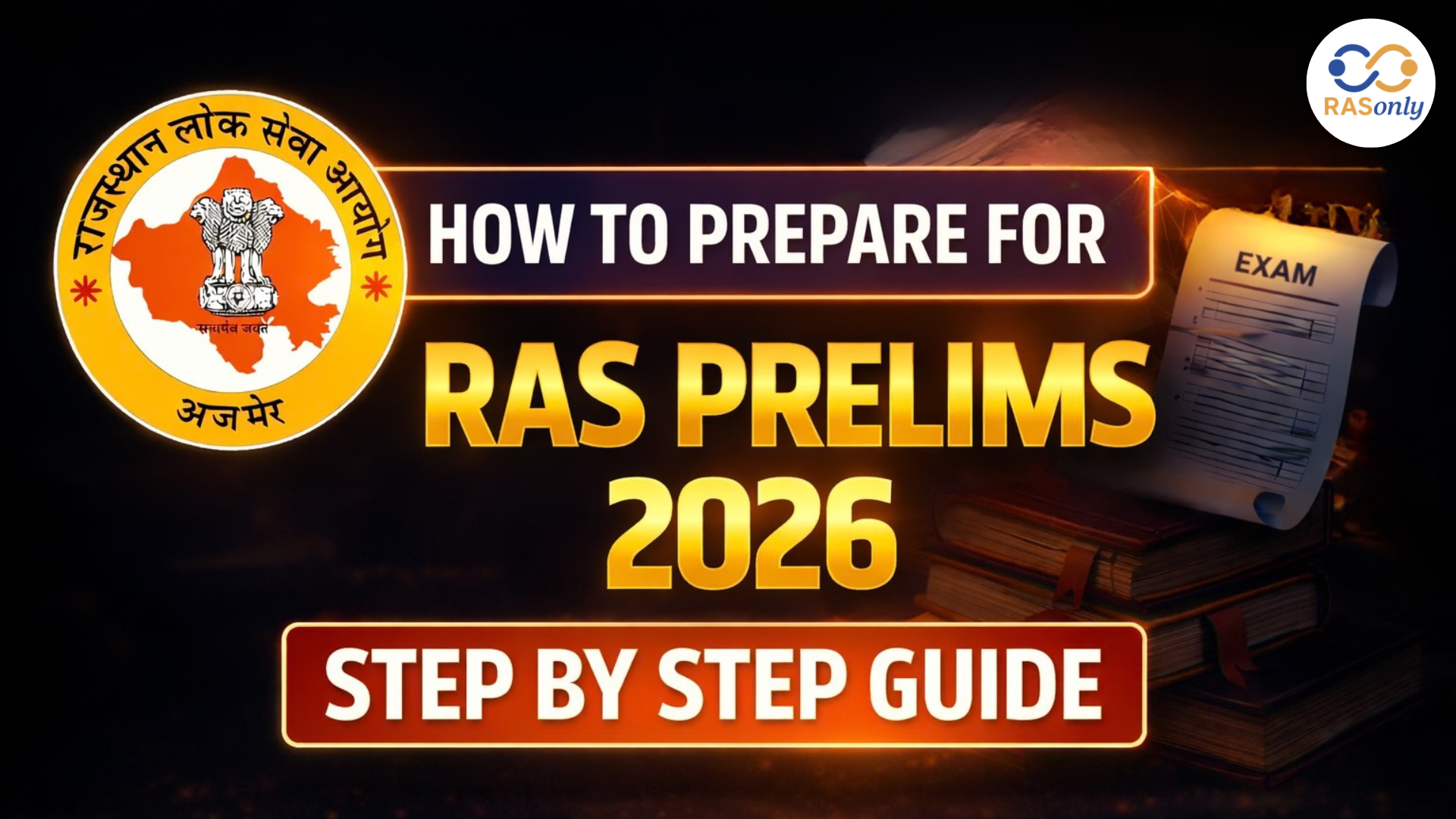RPSC RAS 2026 Subject Wise Exam Pattern for Prelims, Mains & Interview Details
- >
- RAS Preparation Resources
- >
- Sports Policies of India and Rajasthan State
Sports Policies of India and Rajasthan State

Get in Touch with RASonly!

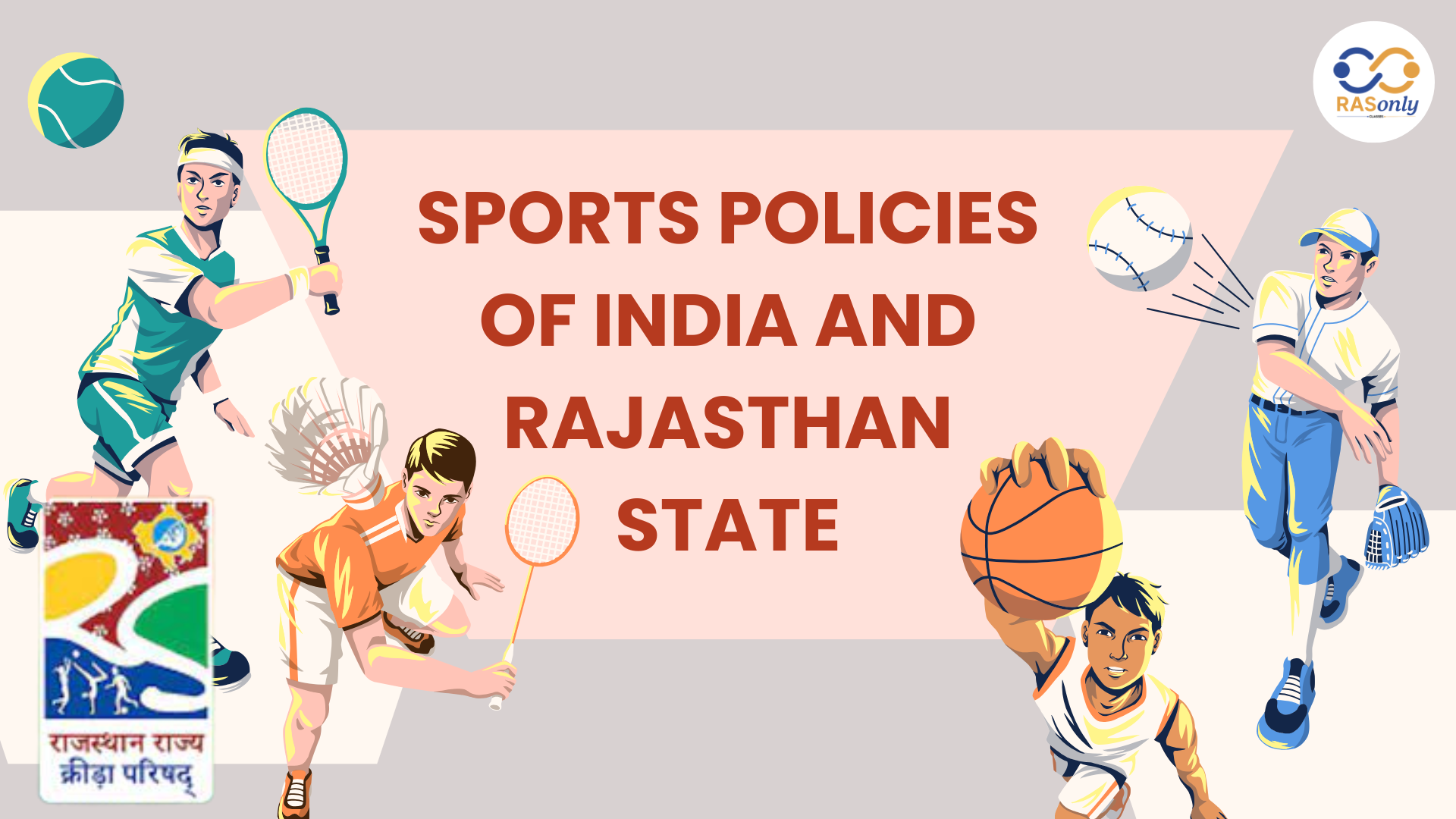
The National Sports Policy of India(1984, revised 2001 and 2011) focuses on mass, talent search and elite performance with Khelo India, Bharatiya Khel and Special Area Games as some of the initiatives. The State Sports Policy of Rajasthan (2013, revised to revision draft-2024) has the athlete welfare, infrastructure and governance change as its areas of consideration. Major interventions will involve pension, medical insurance, digital transparency, open gyms, and hosting of Khelo India University Games 2025. Such bodies as SAI and RSSC are especially crucial. Among the obstacles, one can single out the lag in implementing policies, politics involved in the field of sports, and poor coverage in the distant localities.
Key Points for RAS Mains
Policies National Sports Policy - India
Evolution
- Originally set out in 1984, amended in 2001 and 2011 in an attempt to strengthen the infrastructure, coaching and sports science.
- Interest now dwelt on fully grassroots to full-spectrum athlete development routes.
Key Schemes
- Khelo India (2017): It would be implemented to develop the grassroots sports, inter-school/University competitions, sports science backup, and nurturing of talent.
- Bharatiya Khel: Facilitates the traditional Indian sporting activities in school education that is duly in line to NEP and IKS.
- Special Area Games Scheme: Focuses on infrastructure and identification of talent in tribal, rural, hilly and coastal areas.
Institutions
- Sports Authority of India (SAI): The administration of national level coaching, training and facilities.
- Ministry of Youth Affairs & Sports: Formulates policies, disburses budgets and grants financial honors like Rashtriya Khel Protsahan Puruskar.
Significance
- Establishes an unending talent pipeline in local and global settings.
- Unifies the cultural sports heritage under Bharatiya Khel.
- Organizes sport at an institutional level where sport itself is controlled systematically and at the expense of the masses.
Challenges
- The access to grassroots is uneven in far-flung areas.
- The result of intervals in coordination between various states and agencies results in delays in implementation.
- Scalability of performance is impeded by infrastructural shortfalls.
Policy Evolution
- Based on Gehlot 2013 Policy: Emphasis on institutional practices, quotas in sports organisations and governance reforms poorly implemented- with most of it not being followed up except attempts to do the same with Gehlot-type structural changes in the state cricket board.
- Draft Sports Policy 2024: Will be created based on the contributions made by the people through November 2024; likely to replace the 2013 one. Focuses on sports infrastructure, taking care of the athletes, digitally governed, and priority sports on performance and participation.
Significant Provisions Draft Rajasthan Sports Policy 2024
Sports Classification:
- Priority I: Athletics, Archery, Badminton, Basketball, Boxing, Cycling, Shooting, taekwondo, volleyball
- Priority II: Fencing, Judo, weightlifting, Handball, Power lift, Wrestling
- Priority III: Chess, Football, Gymnastics, Kabaddi, Netball, Rugby, Squash, Table Tennis, Wushu, etc. (Cricket and Polo are not included)
Athlete Welfare:
- International pension: ₹20,000 per month (non-governmental pensioners, athletes, para-athletes and coaches).
- Medical insurance: 10 lakhs of international level; 5 lakhs of national level athletes. It is covered with sports injuries, rehabilitation, and precondition.
Recognition & Awards:
- Congratulations to exceptional performers, associations, coaches, technical personnel, media and officials in the sports field.
- Expansion encompasses journalists, secret coaches, and run-ground staff.
Governance & Reforms:
- Limitation of Tenure: 12 years maximum as office bearer; after a term there should be a cooling-off period; and a limit of age of 70 years before attending elections.
- Mandatory players committee international, and women-athletes.
- Online system to hold transparency during elections of the sports bodies, as well as certificates.
- Annual renewal of sports association annually and enforcement of RTI proposal.
Technical and Infrastructural Framework
- The creation of a sports technical wing and athlete commission to govern, quality of coaches and performance analysis.
- There are also High-Performance Centres (HPC), which are located in Jaipur, and Rajasthan State Sports Institute (RSSI) in Jodhpur.
- Growth of tracks: Clay tracks at block level, cinder tracks at district level and synthetic at divisional levels.
- Residential sports institutes and para-athlete academies that are girls only at the divisional level.
Key Programmes & Institutional Mechanisms
- Rajasthan State Sports Council (RSSC): It is the highest sports body in the State, in charge of development of infrastructures, coaching and state level competitions; headed by Youth & Sports Secretary.
- Its Open-Air Gyms (Fitness for All): It has opened 23 open air gyms around Jaipur to facilitate grassroots fitness by keeping them open 24X7.
- Khelo India University Games 2025: The 5th edition of Khelo India University Games 2025 will be held in Rajasthan in November 2025 with ~6,000, participating athletes across 25 disciplines in multiple indoor and outdoor venues. Incorporates state-level talent hunt similar to TOPS scheme.
- Sports Associations Regulation: RSSC requires sports associations to enter the Executive Committee details and tournament information in an online system; failure to do so causes withdrawal of funding
Comparative Table
|
Area |
India (National Policy) |
Rajasthan (State Policy) |
|
Policy Framework |
NSP 1984 (2011 revision) |
2013 Policy; Draft 2024 Policy soon to be finalised |
|
Welfare Measures |
Scholarships, national awards |
Pension ₹20k/month; Medical insurance ₹10L/₹5L |
|
Governance Reform |
No fixed tenure norms |
Term limits; age cap; players’ committee; digitalization |
|
Infrastructure |
SAI stadiums & Khelo India Centres |
RSSI, HPC Jaipur, divisional institutes, sports tracks |
|
Major Events |
KI Youth Games, School games |
KIUG 2025, district/sub-junior events |
|
Accountability |
Varies across states |
Annual association reporting mandatory |
Issues & Challenges
- Delays in implementation: A good number of the reforms have not been implemented more than 10 years after the adoption of the 2013 policy.
- Cricket Administration Crisis: Nearly a decade of political tampering in Rajasthan Cricket Association (RCA) has disturbed the governance and the development of young talent.
- Inclusivity Issues: Coverage of the remoteness and socioeconomically disadvantaged districts is not great.
- Nutrition & Livelihood: The Reddit post indicates the absence of economic security and nutrition impairs the possibility to make a choice toward sports.
Conclusion for RPSC
Whereas national sports policy of India provided the foundation, the state of Rajasthan seeks to activate a current State of the art and athlete-centric model through its Draft Sports Policy 2024. The draft follows up prior promises, having welfare, governance reform, infrastructure and digital transparency. KIUG2025 hosting, open gyms and having a technical wing are all indications of proactive changes. Proper implementation and long-term governance changes will be the deciding factor on whether the sporting eco-system of Rajasthan will become a regular deliverer and provider of talent.
FAQs related to RPSC RAS
Post Category
- RAS Salary
- Result
- RAS Admit Card
- RAS Job
- RAS Cutoff
- Preparation Tips
- RAS Answer Key
- RAS Exam Analysis
- RAS Syllabus
- RAS Previous Year Papers
- RPSC RAS Exam Pattern
- RAS Interview
- RAS Mains Exam Date
- RAS Vacancy
- RAS Test Series
- RAS Best Books
- RAS Preparation Resources
- RAS Coaching Centre
- History
- Polity
- Geography
- Economics
- Science
- Art and Culture
- RPSC RAS Application Form
- RPSC RAS Notification
RASonly Interview Guidance Program

Mr. Ashok Jain
Ex-Chief Secretary Govt of Rajasthan
- IAS officer of the 1981 batch, Rajasthan cadre.
- Passionate about mentoring the next generation of RAS officers with real-world insights.
- Got retired in Dec 2017 from the post of Chief Secretary of the state of Rajasthan.

Mr. Guru Charan Rai
Ex-ASP / SP in Jaisalmer
- Guru Charan Rai, IPS (Retd), retired as Inspector General of Police (Security), Rajasthan, Jaipur in 2017.
- Served as ASP and SP in Jaisalmer, Nagaur, Sri Ganganagar, Sawai Madhopur, Dausa, Sikar, and Karauli.
- He also held key positions as DIGP and IGP in the Law and Order division.

Mr. Rakesh Verma
Ex-IAS Officer, B.Tech, MBA, and M.A. (Economics)
- IAS officer of the 1981 batch and retired in Chief Secretary Rank.
- Civil servant of high repute and vast experience.
- Has been teaching UPSC CSE subjects for the last six years.
Related Post
Daily Current Affairs for RAS Exam Preparation 2026
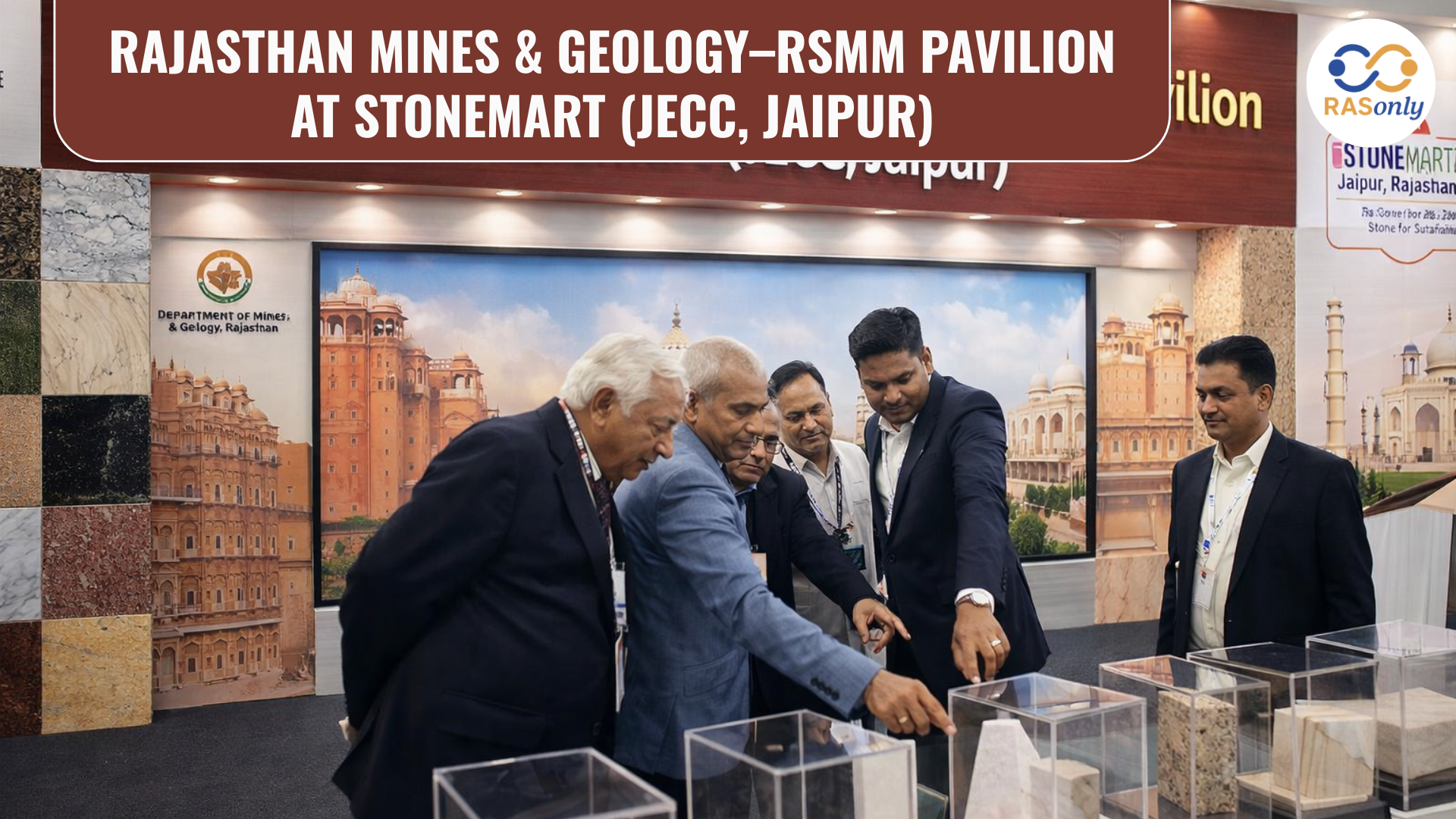
Rajasthan Pavilion Shines at Stone Mart Jaipur 2026
February 07, 2026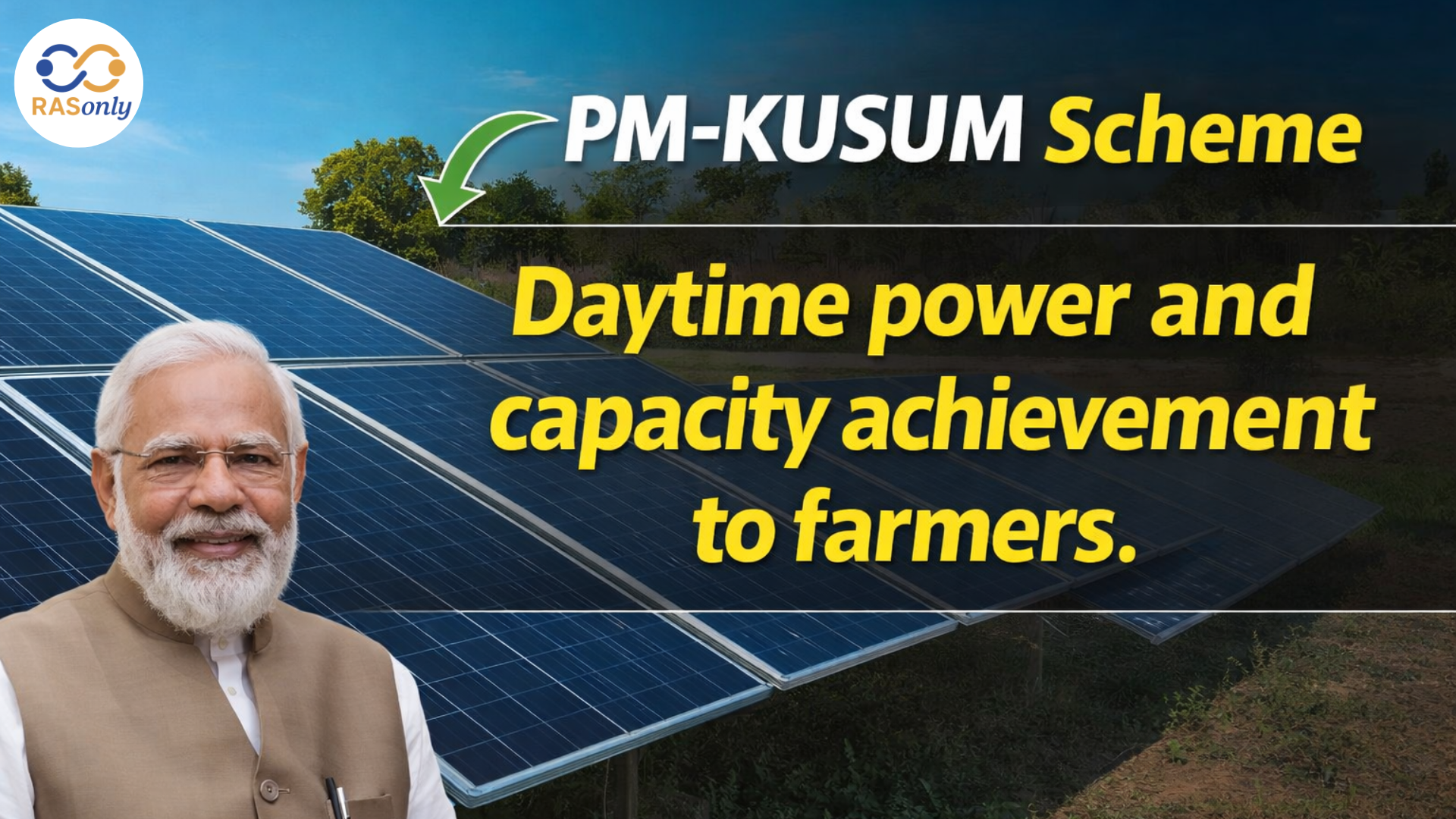
Rajasthan Achieves 3,000 MW Under PM-KUSUM Scheme
February 07, 2026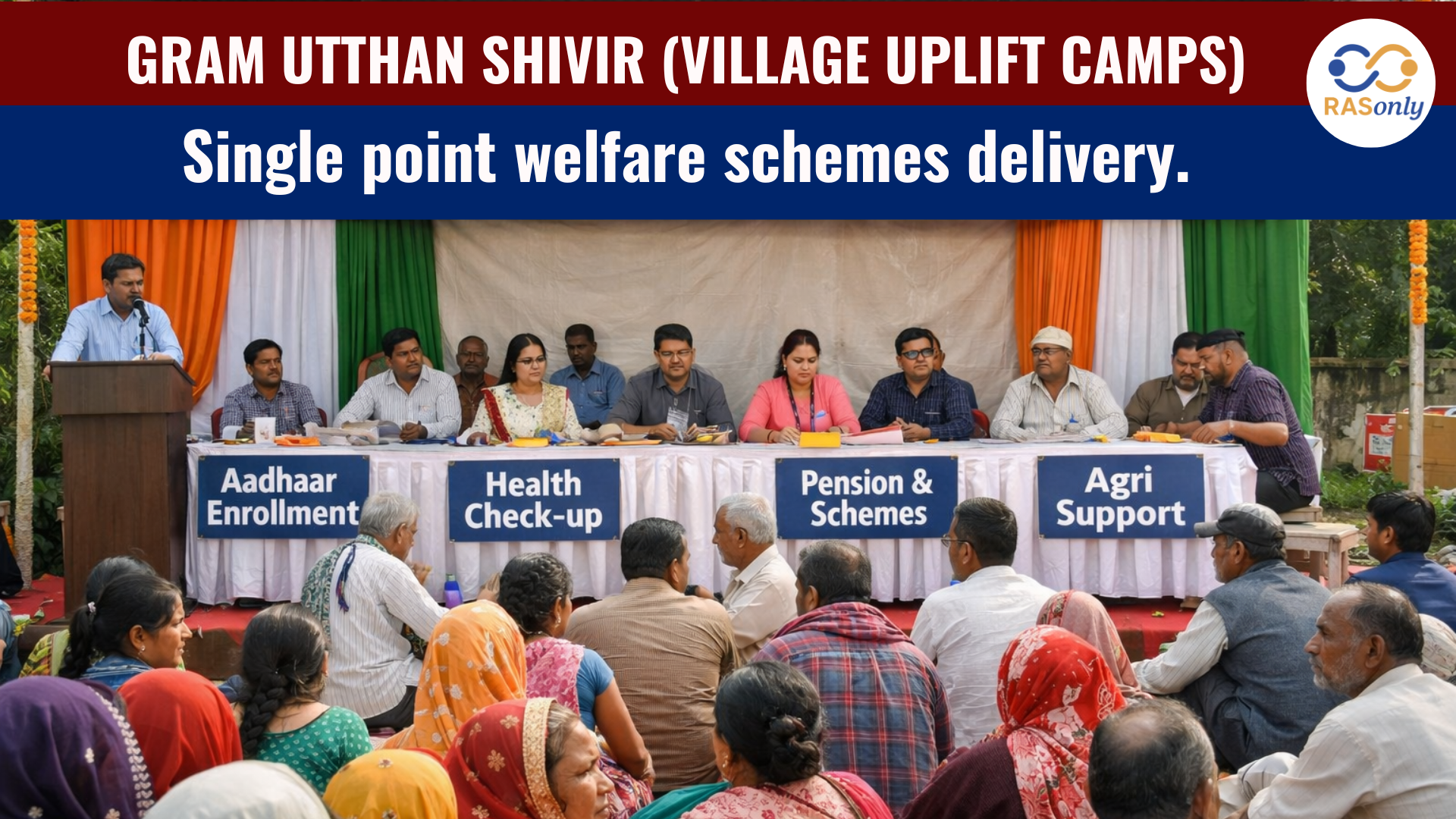
Gram Utthan Shivirs Strengthen Rural Governance in Rajasthan
February 07, 2026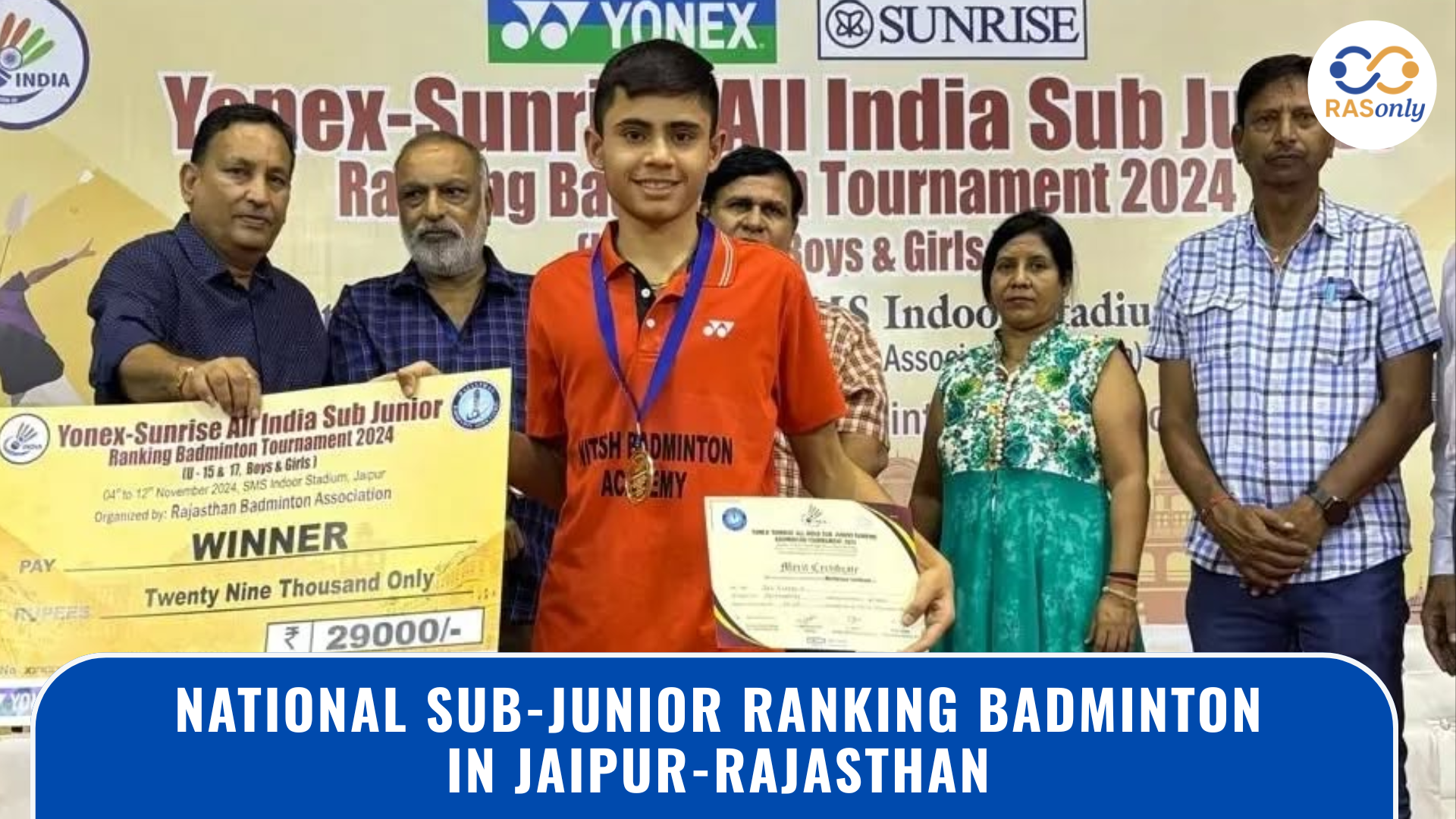
Jaipur Badminton: 72-Minute U-15 Final Creates Record
February 06, 2026👉🏻 Register Today to Join Classes! 👍🏻
- Team RASOnly -
🎯 Benefits of RASOnly Coaching:
- ✅ 1:1 Mentorship with RAS Officers
- ✅ Experienced and Expert Faculty
- ✅ Free Library Access
- ✅ Daily Minimum 4 Hours Must
- ✅ Comprehensive Study Material
- ✅ Regular Tests & Performance Analysis
- ✅ Personalized Guidance & Doubt Solving
- ✅ Online & Offline Class Options
- ✅ Affordable Fees with Quality Education
Key Highlights:
- 👉🏻 3-Day Refund Policy
- 👉🏻 New Batch Starting from 04 August
- 👉🏻 Registration Amount: Only ₹1000




